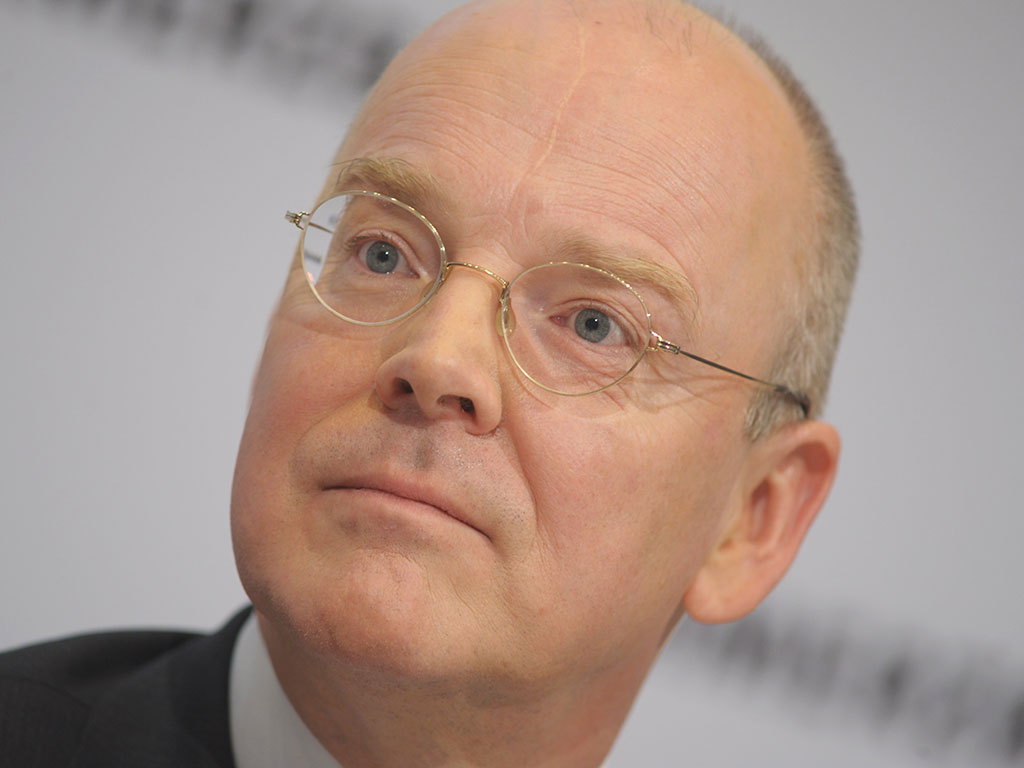
Germany’s second biggest lender surprised analysts November 1 with the news that its chief executive Martin Blessing has chosen not to extend his contract beyond October of next year. Klaus-Peter Müller, Chairman of the Supervisory Board said in a statement he “deeply regret[ed] this decision,” and went on to add that the board will immediately set about the process of finding a successor.
The news of Blessing’s departure broke a day after it was announced Commerzbank would pay a dividend for the first time since 2007
“It is now time for me to embark on a new chapter in my professional life,” said Blessing of his decision. “Today, Commerzbank has a robust business model, excellent employees and managers, as well as a culture that is the envy of many companies. We have overcome the major challenges of the financial crisis or will do so in the coming months. We are also clearly on track to reclaiming our position as a sustainably successful bank.”
The news of Blessing’s departure broke a day after it was announced Commerzbank would pay a dividend for the first time since 2007, which is testament to the good work undertaken by Blessing and his team. Going back to the height of the crisis, the German government invested €16.4bn in Commerzbank to help smooth the sector’s recovery and facilitate the takeover of the then-toxic Dresdner Bank.
The bank’s words were that it would propose a payout of 20 cents per share for 2015, despite the fact that profits are down for the third quarter, driven mostly by restructuring costs. Looking at the opening nine months of the year, net profit is up 62 percent on the year last, which again highlights the shrewdness with which Blessing has navigated a less-than-ideal operating environment in Europe.

